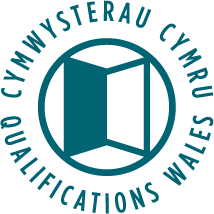| 1. |
Understand the requirements of legislation and agreed ways of working to protect the rights of individuals at the end of life. |
|
| 1.1 | Outline legal requirements and agreed ways of working designed to protect the rights of individuals in end of life care.
| | 1.2 | Explain how legislation designed to protect the rights of individuals in end of life care applies to own job role. |
|
| 2. |
Understand factors affecting end of life care. |
|
| 2.1 | Outline key points of theories about the emotional and psychological processes that individuals and key people may experience with the approach of death.
| | 2.2 | Explain how the beliefs, religion and culture of individuals and key people influence end of life care.
| | 2.3 | Explain why key people may have a distinctive role in an individual’s end of life care.
| | 2.4 | Explain why support for an individual’s health and well-being may not always relate to their terminal condition. |
|
| 3. |
Understand advance care planning in relation to end of life care. |
|
| 3.1 | Describe the benefits to an individual of having as much control as possible over their end of life care.
| | 3.2 | Explain the purpose of advance care planning in relation to end of life care.
| | 3.3 | Describe own role in supporting and recording decisions about advance care planning.
| | 3.4 | Outline ethical and legal issues that may arise in relation to advance care planning. |
|
| 4. |
Be able to provide support to individuals and key people during end of life care. |
|
| 4.1 | Support the individual and key people to explore their thoughts and feelings about death and dying.
| | 4.2 | Provide support for the individual and key people that respects their beliefs, religion and culture.
| | 4.3 | Demonstrate ways to help the individual feel respected and valued throughout the end of life period.
| | 4.4 | Provide information to the individual and/or key people about the individual’s illness and the support available.
| | 4.5 | Give examples of how an individual’s well-being can be enhanced by:
- environmental factors
- non-medical interventions
- use of equipment and aids
- alternative therapies.
| | 4.6 | Contribute to partnership working with key people to support the individual’s well-being. |
|
| 5. |
Understand how to address sensitive issues in relation to end of life care. |
|
| 5.1 | Explain the importance of recording significant conversations during end of life care.
| | 5.2 | Explain factors that influence who should give significant news to an individual or key people.
| | 5.3 | Describe conflicts and legal or ethical issues that may arise in relation to death, dying or end of life care.
| | 5.4 | Analyse ways to address such conflicts. |
|
| 6. |
Understand the role of organisations and support services available to individuals and key people in relation to end of life care. |
|
| 6.1 | Describe the role of support organisations and specialist services that may contribute to end of life care.
| | 6.2 | Analyse the role and value of an advocate in relation to end of life care.
| | 6.3 | Explain how to establish when an advocate may be beneficial.
| | 6.4 | Explain why support for spiritual needs may be especially important at the end of life.
| | 6.5 | Describe a range of sources of support to address spiritual needs. |
|
| 7. |
Be able to access support for the individual or key people from the wider team. |
|
| 7.1 | Identify when support would best be offered by other members of the team.
| | 7.2 | Liaise with other members of the team to provide identified support for the individual or key people. |
|
| 8. |
Be able to support individuals through the process of dying. |
|
| 8.1 | Carry out own role in an individual’s care.
| | 8.2 | Contribute to addressing any distress experienced by the individual promptly and in agreed ways.
| | 8.3 | Adapt support to reflect the individual’s changing needs or responses.
| | 8.4 | Assess when an individual and key people need to be alone. |
|
| 9. |
Be able to take action following the death of individuals. |
|
| 9.1 | Explain why it is important to know about an individual’s wishes for their after-death care.
| | 9.2 | Carry out actions immediately following a death that respect the individual’s wishes and follow agreed ways of working.
| | 9.3 | Describe ways to support key people immediately following an individual’s death. |
|
| 10. |
Be able to manage own feelings in relation to the dying or death of individuals. |
|
| 10.1 | Identify ways to manage own feelings in relation to an individual’s dying or death.
| | 10.2 | Utilise support systems to deal with own feelings in relation to an individual’s dying or death. |
|
